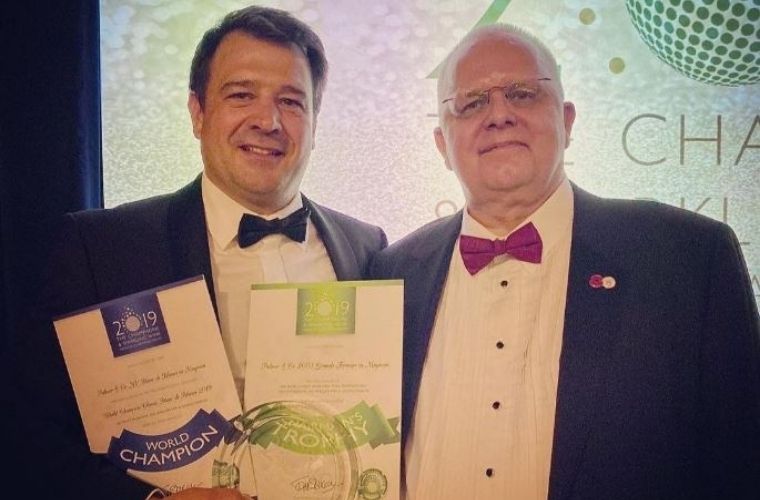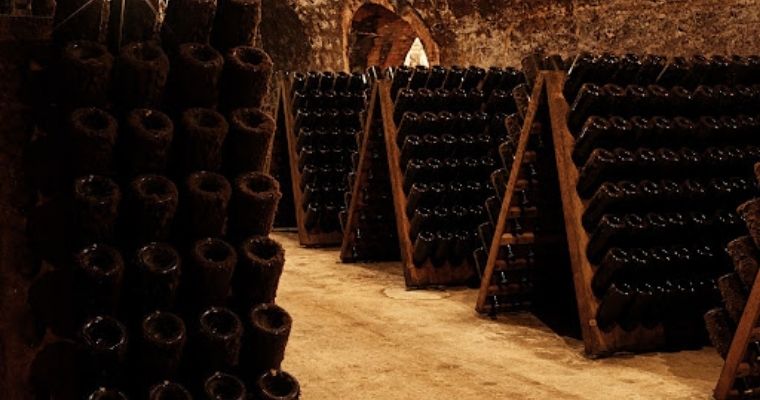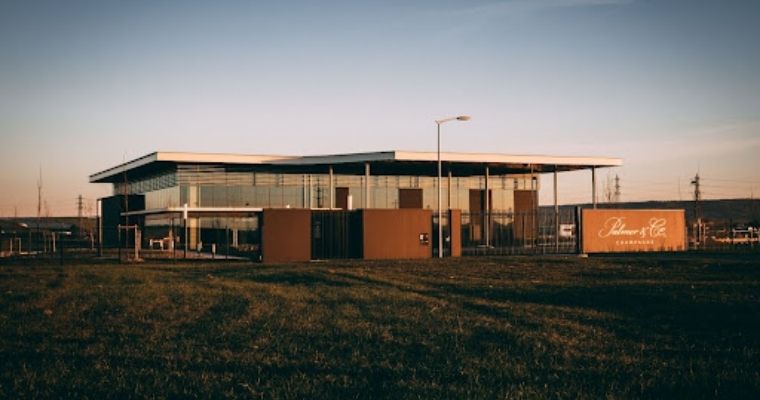Judging Date
May 19, 2025
Winner Announcement
June 10, 2025

Rémi Vervier is the Managing Director and Oenologist at Champagne Palmer & Co, a historic champagne house established in the unique terroirs of the Montagne de Reims. Still grounded to his Burgundian roots, Vervier descended from a winemaking family and grew around his family vineyard in Pouilly Fuissé. After completing his studies in agronomy and oenology, he began his career in Burgundy itself as the Technical Director of Maison Louis Latour for more than a decade. In 2010, he joined Champagne Palmer & Co and is still a part of the team. Currently, he takes care of the management of Champagne Palmer & Co and ensures that the quality and elegance of the wine are maintained. From elongated lees aging to using the solera system, Champagne Palmer is one of the rare champagne houses to adapt such distinctive winemaking techniques. Today, Palmer & Co is one of the internationally recognized champagnes, creating some of the unique blends that are considered as “The work of time”.

I was born at the foot of the Rock of Solutré to a line of Burgundy winegrowers, the passion for the soil and vineyards are in my blood. I chose to study agronomy, then oenology before starting my career in Burgundy, becoming Technical Director for the House of Louis Latour where I stayed for over 10 years.
In 2010, I heeded the call of the great winegrowing regions of the North and left Burgundy to study the art of blending. Fascinated by this complex alchemy, specific to the Champagne region, consisting of matching "clear wines" from different growths, varieties, and years, each with its own unique expression.
[[relatedPurchasesItems-41]]
I wear two hats, the first as managing director and the second as an oenologist. I work alongside the Cellar Master Xavier Berdin and three other oenologists responsible for the excellence of Palmer & Co's distinctive wines, a signature universally recognized for its elegance and balance. With these two hats, I am involved, from the vineyard to the cellar, and from the cellar to the trade.
To make great champagne, you need great terroirs, time, and the mastery of ancestral know-how.
"What is done with time, Time will respect it," wrote Rodin. This maxim could be applied to Palmer. Time is indeed essential in winemaking. Finding the perfect moment to harvest, taking time for fermentations, taking time to achieve the perfect blend, leaving the wines on lees for many years to achieve the perfect balance... Managing time is clearly one of the keys in the Champagne Palmer winemaking process.
But we always keep in mind that we are only highlighting what has been handed down by the elders. We are baton bearers and we do our best to make this beautiful house shine. If you respect that, the authenticity of your champagne is maintained over time without difficulties.
I would say that it is the proximity that makes the difference. The human relationship is key at Palmer. We try to meet our prescribers throughout the year, to receive them at the estate whenever possible. It is by creating this link that our prescribers become true Palmer ambassadors.
True to its origins, it is in the great terroirs of the Montagne de Reims, the House’s historic crucible, that Champagne Palmer & Co selects the Chardonnays, Pinot Noirs, and Meunier that will be used to form the range. Most of the Palmer & Co vineyards are located on the north-facing slopes (the Grands Crus of Mailly and Verzenay) and north-eastern slopes (Premiers Crus of Trépail and Villers Marmery) of the Montagne de Reims, where the environment is rigorous and climates are extreme. The grapes harvested from these grand terroirs are known for their power, structure, and nobility.
We work closely with our winegrowers and our technical team to ensure that we pick the best grapes possible. But I must say that those who work with us know how demanding the House is and we work in complete confidence.

Rémi Vervier at the 2019 Champagne & Sparkling Wine World Championships Awards; Source: Instagram / Champagne Palmer
We only use the DTC channel for our domestic market. The COVID crisis has undoubtedly accelerated the digitalization of the market and we are getting very good results. Even the most refractory have understood the interest of DTC. It is an additional sales channel that will continue to grow in importance. For the time being, we are focusing on France. Regulatory barriers are blocking the development of distance selling for export.
We sell 75% of our production abroad. Our key global markets include the world’s most important champagne markets with mainly France, the UK, the USA, Belgium, Italy, and Japan. Champagne Palmer has also been growing extremely well in the Nordics, and particularly in Sweden, our biggest export market, where Palmer & Co is one of the leading brands.
The difficulty lies in respecting the messages transmitted to the first tier and ensuring that it is not transformed. We are thinking more and more about tools that reach the end consumer. And social networks are an important tool to achieve this.

Cellar of Champagne Palmer
As a winemaker, our mission is fulfilled when a champagne house can be identified through its style. And I can say without blushing that this is true with Palmer & Co. Dominated by the freshness and purity of its Chardonnays, the Palmer & Co style is seductive through its precision and clarity. The grace and power of the Pinot Noir, the generosity of the Meunier, and the significant contribution made by reserve wines confer a rich fullness and rare maturity. I think, therefore, that Brut Reserve is our flagship cuvee. This cuvée perfectly embodies the fundamentals of the house.
An AOC with a worldwide reputation has a duty to pursue environmentally-friendly wine production. Always significant, this concern has become even more of a priority for Palmer & Co over the past 10 years, driving an approach towards more sustainable vineyard practices. But these practices do not only concern the vineyard but also the winemaking process and CSR policy of the company. It is overall care for all the rooms of the house. Therefore we are following an exhaustive and demanding action plan.
We recently unveiled our new state-of-the-art winery, located outside of Reims and close to the House’s Grand and Premier Crus vineyards in the Montagne de Reims. The new HQE (High Environmental Quality) winery is housing our celebrated reserve wines which form the cornerstone of the Palmer & Co style. It has been meticulously designed to be bioclimatic and to maximize natural light. It also uses the natural slope of the land to facilitate flow by gravity. Visitors can enjoy the new space from a bespoke tasting room that overlooks the winery. This new site perfectly reflects Palmer & Co's commitment to following the path of innovation and sustainable development. Every detail has been studied in-depth to ensure that the building meets the highest quality and environmental standards. We are aware that we are a forerunner, but we look forward to seeing more projects like this flourish in Champagne.

State of the Art Winery - Champagne Palmer & Co
I will never deny my roots… Some great Burgundy wines are in my cellar, but I am not sectarian at all and like to discover wines from all over the world as long as they can be shared in good company.
Interviewed by Prithvi Nagpal, Editor & Sommelier, Beverage Trade Network
Header Image Source: Bottl (Rémi Vervier)
Enter your Wines now and get in front of top Sommeliers, Wine Directors, and On-Premise Wine Buyers of USA.
